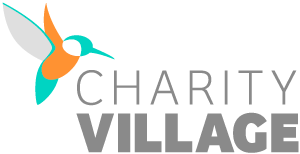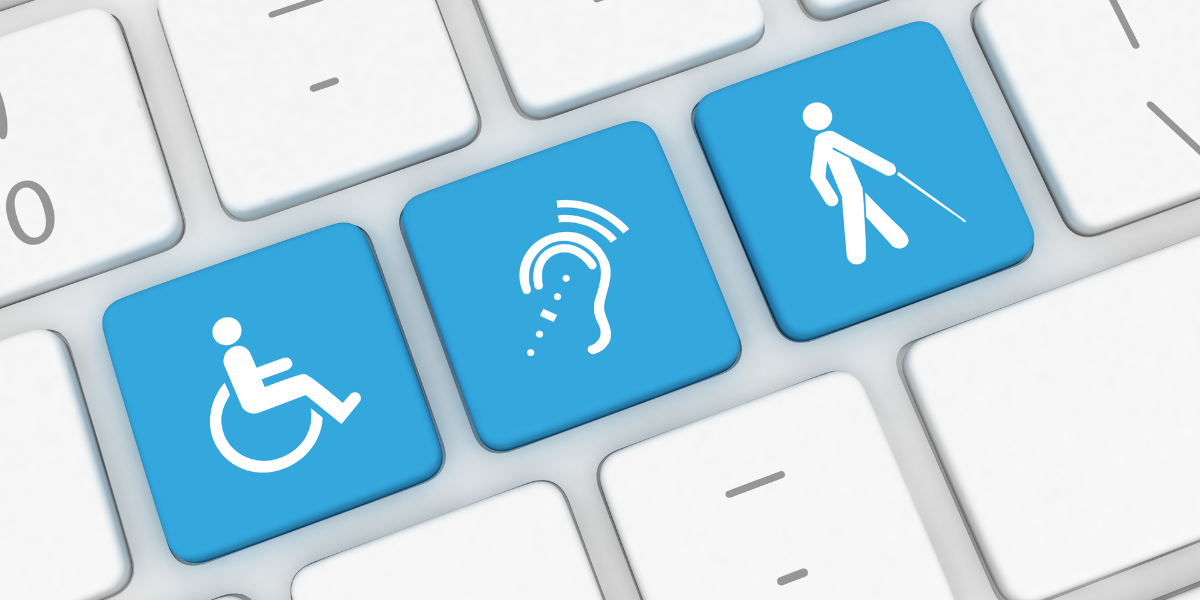In our recent CharityVillage Connects podcast episode exploring diversity, equity, and inclusion in Canada’s nonprofit sector, we interviewed Josh Basile, a C4-5 quadriplegic, disability rights advocate, and medical malpractice lawyer. Josh is also a Community Relations Manager with accessiBe, a company that provides digital accessibility tools to help organizations improve their online accessibility.
In our interview with Josh, we learned about the importance of including disability and accessibility in equity work, how the pandemic has created both challenges to and opportunities for advancing accessibility, and the importance of ensuring your organization’s online presence is digitally accessible for all users.
As we began our conversation, Josh recalled the fateful day that changed the course of his life permanently.
Josh Basile: When I was 18 years old, I was on a family vacation at the beach. I was in waist-high water. A wave picked me up and threw me over my boogie board and slammed me on my head. And that day I shattered my neck. I became paralyzed below my shoulders. I remember floating face down in the water and just hoping my friends would see me. And they did. They pulled me to shore, I woke up 14 days later in a critical unit with a ventilator helping me to breathe. So the only way I could communicate was with my eyes by blinking once for yes, or twice for now. And when I did regain my voice, I made sure that every day, every word from that moment on counted, and that’s the day I became an advocate for life.
For a disability rights advocate like Josh Basile, prioritizing accessibility in any organization – nonprofit or otherwise – has the potential to reshape the country. That’s why, when it comes to diversity, equity, and inclusion practices, Josh would also like the addition of one simple word, “Disability”.
Josh Basile: The more people, the more diversity, equity, inclusion and disability that we include within the workforce, it reshapes the country. It reshapes the conversation, allows companies to have a better opportunity to communicate with a broader customer base. All abilities, not just certain abilities have access to their website or their stores on two feet. So both the business world [and] the nonprofit world are the big change makers on the ground that are reshaping it for people with disabilities or vulnerable populations that need supports or different services…
I love my nonprofits. They’re the best. They do the work on the ground, the tough work on the ground to make the world a better place and to make a difference. So it’s, it’s just so important that both the nonprofit and for-profit sector have DEI and disability. A lot of times they just say diversity, equity, inclusion, but I love to say DEI and disability because it’s an important piece of the puzzle.
Josh also spoke about how the pandemic leveled the playing field a bit more for workers with disabilities by the pivot to remote or hybrid workplaces. At the same time, he raised a flag about web accessibility issues – something remote work depends on – that organizations should keep in mind when making their workplaces more welcoming to those with disabilities.
Josh Basile: Before the pandemic, too often, unfortunately, many people with disabilities were stuck in their homes and did not venture out as much as they could. And then the pandemic happened and we were trapped even more so. But with that being trapped…the world started paying more attention to the fact that the people with disabilities need access to the world around them. And that if it’s not a physical storefront that’s accessible, the internet needs to be accessible. And less than 3% of the internet meets guidelines which govern kind of what accessibility is on the internet. So more and more people talked about it and then it became more mainstream. More people were like, all right, what can we do about this?
And that’s why we started to hear more. But then also, you know, a lot of times we didn’t hear a lot about disability prior as much because workers with disabilities are the most unemployed or underemployed population than any other group in the country. And that’s starting to change. The numbers are increasing, I actually believe because of the pandemic, because remote work has been a viable option, more so than ever. And before a lot of people didn’t believe, if you weren’t making it in because of a transportation barrier to work or because you weren’t in the office, you weren’t working. And what we’ve seen is people can work at a high level with the right accommodations in place. And for some people with disabilities, having the option to work from home is transformative.
Finally, Josh explained the importance of online and digital accessibility for people of all abilities. In fact, he suggests, creating an accessible online experience can be truly transformative.
Josh Basile: Whether you have a mobility disability, a visual disability, a cognitive [disability], whether you have epilepsy, there’s so many different abilities that exist in this world today. One in four in the US are living with a disability. So no matter the abilities, they navigate a website differently. Some people with different disabilities and abilities have reading software to make them know what what is actually in front of them. And if you have a mobility disability, a lot of times you use voice dictation software. So as fast as you can speak and can type, but if a certain form is not there to take your voice dictation software, you can’t type your name or your credit card information.
I use an onscreen keyboard to navigate a page. I tap through different sections, I go to the menus, I go to the dropdown menus. And if a website doesn’t have accessibility built in, I can’t access that and I’m stuck on the homepage. I can’t go to the dropdown menu to get to the next page.
So you want to be able to make sure that people not only have a safe experience on websites, but they also can use the website, they can navigate the website and get from point A to point Z and everything in between without falling through the cracks or having to ask someone for help. Everybody deserves the ability to be able to navigate a page on their own with your own unique technology and abilities. And when you [are] able to bring accessibility or usability to a webpage, it’s transformative. And it gives people the ability to have better experiences and options.
Want to hear more from Josh? Listen to his full interview for the CharityVillage Connects podcast here.
Learn more about how Canada’s nonprofit sector is taking action on diversity, equity, and inclusion – listen to the full podcast episode, featuring a variety of sector experts, here.







